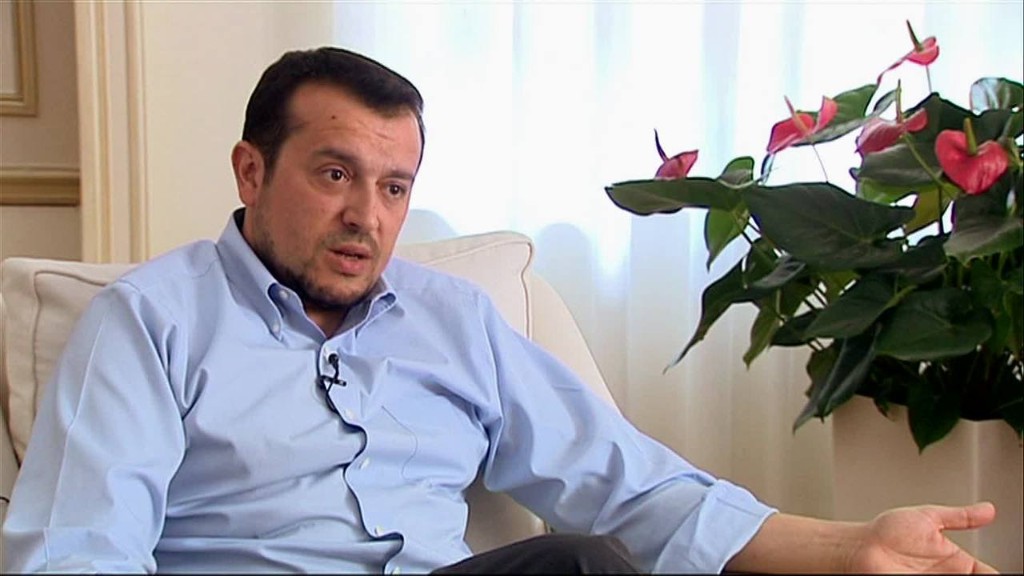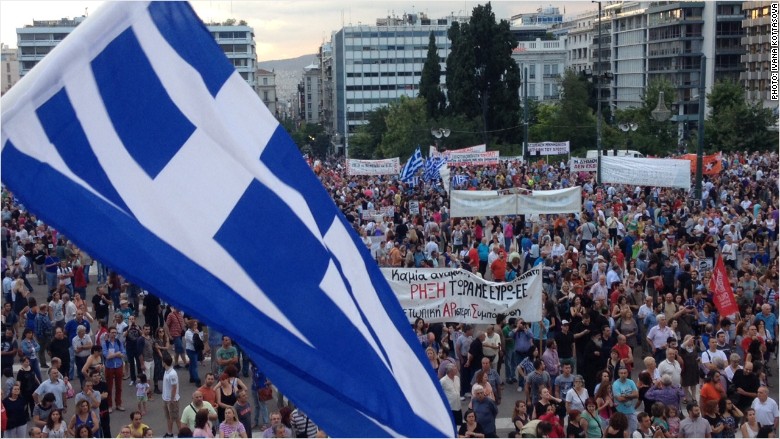
Greeks crowded into Athens Sunday to urge their leaders to stand firm against austerity as the country made a last ditch attempt to persuade Europe to release urgently needed bailout cash.
Protesters gathering outside parliament carried flags and signs that read: "The people cannot be blackmailed, the country is not for sale."
Prime Minister Alexis Tsipras spoke to German Chancellor Angela Merkel by phone, and to the leaders of France and the European Commission, on the eve of a summit that could determine Greece's future in the eurozone.
"The prime minister presented the Greek proposal to the three leaders for a mutually beneficial agreement that will provide a definitive solution and not a postponement of addressing the problem," Tsipras' office said in a statement.
Tsipras knows that without a deal with Europe, and the International Monetary Fund, he risks leading Greece into default -- it owes the IMF about 1.5 billion euros this month -- and out of the euro.

Banks are tottering as anxious account holders rush to get their hands on cash. They're only able to remain open because the European Central Bank is pumping in emergency support -- something that can't continue indefinitely and is not guaranteed if Greece goes bust.
Related: Planning a Greek vacation? Take cash!
Tsipras was elected in January on a promise to ease the pain of austerity -- the spending cuts and tax increases that were a condition of Greece's record 240 billion euro international bailout over the past five years.
That money has kept Greece afloat while it has been unable to borrow money from financial markets. But the last tranche of loans -- 7.2 billion euros -- has been withheld pending agreement on more economic reforms.
Many Greeks have had enough: The economy has shrunk by more than 25%, one in four Greeks is out of work, and pensions and salaries have fallen. And Tsipras has refused to accept the terms on offer.
Europe and the IMF have held firm, arguing they can't hand over more money if Greece isn't prepared to take the measures necessary to live within its means and get the economy back on track. They point to Ireland and Portugal, which have come through harsh bailout regimes and are now growing again.
So four months of talks have gone nowhere. Monday's summit represents a make or break moment for Greece.
Most Greeks tell opinion pollsters they want to remain in the euro, but for some the price may be too high.
"I'm not worried about the euro. We can find other partners, like China, Russia," said Ioanna Tsironis, a public health inspector whose salary has been cut by 40% in three years.
Related: Greece agrees Russian gas pipeline deal
Others attending Sunday's anti-austerity protest also called on the government to continue to resist creditor demands for more pension cuts.
"I'm lucky because I live with my parents, who are retired and get pensions. But there are too many people who are not that lucky, who don't have family to help them," said Konstantinos Papageorgiou, who has been unemployed since finishing university two years ago. "This government is doing a good job. This government is the result of many years of protests."
European finance officials will meet early Monday to try one more time to get a deal before eurozone leaders including Merkel and Tsipras convene later in the day in Brussels.
Related: Greece: The ultimate doomsday scenario
-- Chris Liakos and Elinda Labropoulou contributed to this article.


